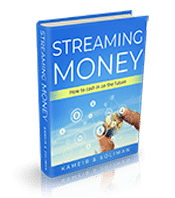Google Arbitrage
 One scam that Google AdWords advertisers need to be aware of is ‘click-through arbitrage’. Webmasters use arbitrage to take advantage of a loophole in Google’s Adwords advertising system, using a combination of Google’s AdWords and AdSense system: Adwords allows bidding on the search terms beside which their advertisements will appear within Google’s search engine results pages (SERPs). The more demand for the search term, the more advertisers pay for each click on the ad that appears when users search for that term.
One scam that Google AdWords advertisers need to be aware of is ‘click-through arbitrage’. Webmasters use arbitrage to take advantage of a loophole in Google’s Adwords advertising system, using a combination of Google’s AdWords and AdSense system: Adwords allows bidding on the search terms beside which their advertisements will appear within Google’s search engine results pages (SERPs). The more demand for the search term, the more advertisers pay for each click on the ad that appears when users search for that term.
The arbitrage scheme exploits that system using the basic buy low and sell high principle. A web site arbitrageur bids low amounts on keywords trusting that the used advertising copy will create click-throughs. The page that the search engine user will see upon click-through typically contains nothing else but more Google advertising in form of Google’s AdSense program, manipulating the presented ads to only show high priced keyword advertising. Since most users will more likely click on one of these ads than going back to the Google results page the webmaster hence makes more money from AdSense than he is paying for the AdWords click-through.
This kind of arbitrage is prohibited under Google’s AdWords terms and conditions. But although Google has put in measures to hunt down webmasters that engage in these king of scams, unethical webmasters seem always to be on step ahead of the search engine. Google’s latest attempt trying to fight this kind of AdWords misuse was the implementation of a “quality score†based on whether the landing pages appear to be content-less advertising pages or to have legitimate value. Pages with low quality scores are flagged by the spider and often must pay hundreds of times more for the same Adwords in Google’s auctions. And although Google has left the criteria for these scores a subject of mystery to prevent arbitrageurs simple identify Google’s bots and deliver a different page to the search engine – a process called ‘cloaking’. There are also voices which say that Google might not have a great deal of motivation to stop click-through arbitrage since the search engine in effect makes more money by scammers putting up additional advertising for Google.
Some of these criminals make an excess of $1,000,000 per year re-diverting traffic using these kind of arbitrage schemes. If you see pages that are just jam-packed with Google advertising and do not provide any information report them to Google.
 What is Google Coop?
What is Google Coop?



